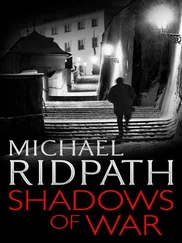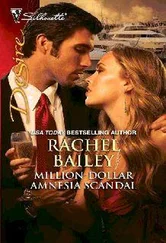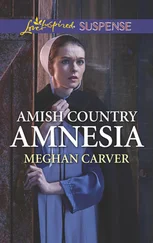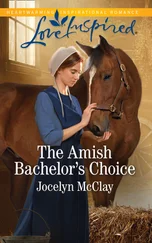I, alone, didn’t mention Alden’s name. The reason was pretty straightforward really: I felt guilty about helping to kill him.
The murder was only mentioned head-on once, at dinner on the second night. As he was pouring some of the delicious soft caprese wine from the third bottle of the evening, Nathan reminded us of the couple who had been looking after the Deauville villa.
‘I don’t think I told you, but I heard from Monsieur Lemoine a couple of years ago. His wife was getting old and unable to do all the cooking and cleaning that they were used to. They wanted to retire, and buy a small cottage in Pont L’Évêque to be near their daughter and grandchildren. They wondered if I could help them.’
‘Good God!’ said Stephen. ‘That’s blackmail!’
‘It is indeed,’ said Nathan. ‘But very nicely done. No mention of what they had or hadn’t seen. No threat. They were asking for an amount that we could easily afford.’
‘Did you give them the money?’ said Stephen.
‘Yes,’ said Nathan. ‘They were very grateful.’
‘But how can you know whether they really saw anything?’ said Tony.
‘They saw something,’ said Madeleine. ‘Or more probably heard something. It’s just they were cunning enough to keep quiet during the murder investigation. They wouldn’t make a demand like that unless they knew something was amiss.’
‘But they’ll just come back for more,’ said Stephen.
‘They already have,’ said Nathan. ‘Now they live in Pont L’Évêque they need a car. Just a small one.’
‘And you paid them?’ said Tony.
‘Half of what they asked for,’ said Madeleine. ‘Just to stop them from getting too greedy. We can afford it, and it’s worth it.’
‘Since we are all here together now, we just thought we should let the rest of you know what we’ve done,’ said Nathan. ‘It’s the kind of thing you shouldn’t put in a letter.’
There was silence around the table. We were not just friends; we were conspirators.
‘We were lucky,’ said Tony.
‘Very lucky,’ said Stephen.
‘It was all thanks to Angus,’ said Nathan. ‘I don’t know how you thought of so much so quickly. I will always be grateful.’
He raised his glass. ‘To Angus.’
‘To Angus,’ the others repeated.
‘It was nothing,’ I said, looking around the table at my friends with a stiff smile. It was true: with the exception of Elaine I had been the most innocent, the most naïve of the people in the room that night, yet it had been me who had somehow cobbled together a story that held up against all Inspector Pasquier’s probing. And their gratitude seemed sincere, with the exception of Sophie, who looked uncomfortable, as well she might. The others were willing to go along with the fiction that we had dealt sensibly with a ghastly accident. Indeed, it was a lie I had told myself for the last four years to enable me to live with myself. But it was a lie. Nathan had killed Alden and the right thing to do would have been to tell the police.
‘We are not quite all here,’ said Stephen. ‘How is Elaine? Where is she?’
‘She’s a junior at Bryn Mawr,’ said Nathan. ‘Studying French, I believe.’
‘She wrote me that she’s coming over to Europe again next month,’ said Tony. ‘With a friend from college and possibly her aunt as chaperone, although she is trying to lose the aunt. She’s planning to stay here for a week.’
‘She hasn’t said anything about Alden?’ Stephen asked.
‘We’ve never mentioned it,’ said Nathan.
‘I’ll make sure she is OK with it,’ said Tony. ‘But she’s a good kid. She won’t talk.’
From what I had seen of her four years before, Elaine didn’t strike me as a good kid. But she was probably practised at keeping her own misdemeanours quiet.
‘None of us has anything to worry about,’ said Nathan. ‘I guess the French authorities will have something much more important to be concerned about soon. Like the Germans marching over the Maginot Line.’
There then followed a disjointed and ill-informed discussion of likely German and French strategies in a war. But I feared that Nathan was dead wrong when he said that we need not worry about Alden’s death. I suspected we would all be worrying about that for the rest of our lives.
And so we should.
We visited the Villa Jovis on the third day. At breakfast, they all asked me about Tiberius. I described the orgies and torture the emperor was supposed to have indulged in on the island: the teams of sexual performers copulating in triple unions in front of him; the ‘old goat’s garden’ where boys and girls dressed up as Paris and nymphs solicited sex; the paintings and sculptures in his palace and his library of erotica always handy in case guidance was needed on the more complicated techniques. I skimmed over some of the more depraved descriptions involving young boys and babies. Tiberius was a monster, at least according to Suetonius, but I was fascinated by how and why the most powerful man in the world should choose to shut himself up on this island for the last twelve years of his life.
The path up to the palace was steadily uphill, and despite a stiff cool breeze, it was hot work. We shooed off the locals trying to tempt us on to donkeys for the climb. Birds serenaded us from lemon trees and vines along the route. I walked with Tony at the head of the group, who of course knew the route, and with Sophie. After a while, we paused for breath beside a drinking fountain. The Bay of Naples had opened up before us, and behind us was Capri town and the stone ramparts of Monte Solaro.
‘Just over there is the Villa Fersen,’ Tony said, pointing to a path through orchards and vineyards. ‘Baron Fersen was a kind of modern-day Tiberius. His villa is one of the most spectacular on the island.’
‘Did he throw people off cliffs?’ asked Sophie.
‘I don’t think so, but he’s got the right place for it. He was kicked out of Paris at the beginning of the century for organizing orgies for politicians and other notables, so he came here where he would be left alone to amuse himself with the island’s young boys. There used to be a lot of that kind of thing on Capri — still is, probably.’
‘I think I’ve heard of him,’ said Sophie. ‘It was a big scandal. He was heir to a steel fortune, wasn’t he?’
‘That’s right. He was very wealthy, easily the richest man on the island, and he was still in his twenties when he arrived. He built himself a fabulous villa way up here, and spent most of his days with his boyfriend smoking opium and writing bad poetry. But he was too much even for the Capresi. He died here about fifteen years ago — too much drugs and alcohol. They think it was suicide.’
‘Have you seen the villa?’ Sophie asked.
‘Yes. No one lives there now, but a local family looks after it. If you give them a tip, they’ll show you around. It’s a bit of a mess, the garden is overgrown, but it’s in a spectacular position. And there is an extraordinary opium den in the basement.’
‘Can we have a look?’
‘Maybe on the way back. If we have the energy.’
We continued the climb, until we finally reached the top of the cliffs and the Villa Jovis. Despite having been only recently excavated, the villa itself was a bit of a disappointment: it looked less like a luxurious palace and more like an ancient water-gathering system. Massive cisterns were needed to keep the place watered in the summer, and they were what had survived best after two thousand years. And in an act of pious vandalism, someone had built a little church at the highest point to sniff down on the pagan emperor’s infamous ruins.
If the villa was disappointing, its situation was not. In an island full of fabulous views, this was the most magnificent. The classic shore of the Bay of Naples stretched in a long curve from the island of Ischia, through Naples and Vesuvius, to the Cape of Sorrento. On the southern side of the cape lay the fabled Amalfi coast and the Gulf of Salerno and, of course, much closer, lurked the rocky green beauty of Capri itself. Just below the peak, a straight shaded avenue led under pine trees to some flimsy wooden railings. I approached gingerly — this was the notorious Salto di Tiberio — and looked over. Hundreds of feet below, deep-blue water swirled and sucked at the rocks at the foot of the cliffs, so bleached they were nearly white. It was a long, long way down.
Читать дальше












